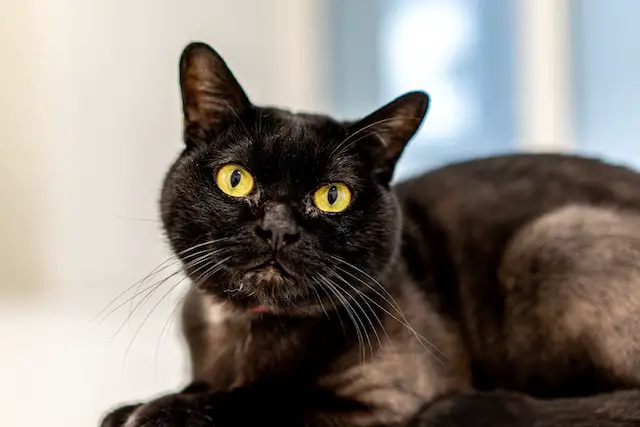Female Bombay cats are known for their striking black coat and friendly personality. However, some people may wonder if these cats are aggressive. While aggression is common in cats, it is essential to understand if female Bombay cats are more likely to exhibit this behavior.
According to experts, female Bombay cats are not inherently aggressive. They are known for their affectionate and playful nature.
However, like any other cat breed, their behavior can be influenced by various factors such as their environment, upbringing, and socialization. It is important to note that cats, in general, may exhibit aggressive behavior if they feel threatened, stressed, or anxious.
While female Bombay cats are not known for their aggression, it is essential to understand and recognize the signs of aggressive behavior in cats. This can include hissing, growling, biting, and scratching.
It is recommended to seek the advice of a veterinarian or a professional cat behaviorist if you notice any concerning behavior in your cat.
The Behavior of Female Bombay Cats
Aggression in Female Bombay Cats
Female Bombay cats are generally not considered aggressive. However, like any other cat breed, they may exhibit aggressive behavior under certain circumstances.
Various factors, including fear, territoriality, and frustration, can cause aggression in female Bombay cats.
Fear-induced aggression in female Bombay cats may occur when they feel threatened or cornered. They may lash out and scratch or bite to defend themselves.
Territorial aggression may occur when a female Bombay cat perceives other cats or animals as threatening her territory. This type of aggression may be more common in unspayed female cats.
Frustration-induced aggression in female Bombay cats may occur when they cannot fulfill their instincts, such as hunting or exploring. This type of aggression may be more common in indoor cats that do not have access to the outdoors.
Factors that Influence Aggression in Female Bombay Cats
Several factors can influence the likelihood of aggression in female Bombay cats. These factors include genetics, socialization, and environment.
Genetics may play a role in the temperament of female Bombay cats. Some cats may be predisposed to aggression due to their genetic makeup.
Socialization is also an essential factor in determining the behavior of female Bombay cats. Proper socialization during kittenhood can help prevent aggression later in life.
Socialization should include exposure to other cats, animals, and people.
The environment in which a female Bombay cat lives can also influence her behavior. A stressful environment, such as one with loud noises or frequent visitors, may increase the likelihood of aggression.
Overall, female Bombay cats are not considered aggressive but may exhibit aggression under certain circumstances.
Genetics, socialization, and environment can all influence the likelihood of aggression in female Bombay cats.
Managing Aggression in Female Bombay Cats
Training and Socialization
Training and socialization are essential in managing aggression in female Bombay cats. It is important to start training and socialization at a young age to prevent aggressive behavior from developing.
Socialization involves exposing the cat to different people, animals, and environments to help them feel comfortable and confident in new situations.
Positive reinforcement techniques, such as clicker training and treats, can teach the cat good behavior and discourage aggression.
Environmental Enrichment
Providing environmental enrichment can help reduce aggression in female Bombay cats. Ecological enrichment includes toys, scratching posts, and perches to keep the cat mentally stimulated and physically active.
This can help prevent boredom and frustration, leading to aggressive behavior. Additionally, providing hiding spots and vertical spaces can help the cat feel safe and secure, reducing the likelihood of aggression.
Medical Intervention
If a female Bombay cat displays aggressive behavior, it is essential to rule out any underlying medical conditions that may be causing the behavior.
A visit to the veterinarian can help identify any physical or medical issues contributing to the aggression. Medication may sometimes be recommended to help manage the cat’s behavior. However, medication should only be used under the guidance of a veterinarian and should not be relied upon as the sole method of managing aggression.
Overall, managing aggression in female Bombay cats requires training, socialization, environmental enrichment, and medical intervention when necessary. With the proper care and attention, most cats can learn to manage their aggressive behavior and live happy, healthy lives.
[su_box title=”Affiliate Disclosure”]This website is supported by its readers. Please assume that all links are affiliate links. If you make a purchase from one of the links we will make a commission from Amazon. Thank you.[/su_box]




